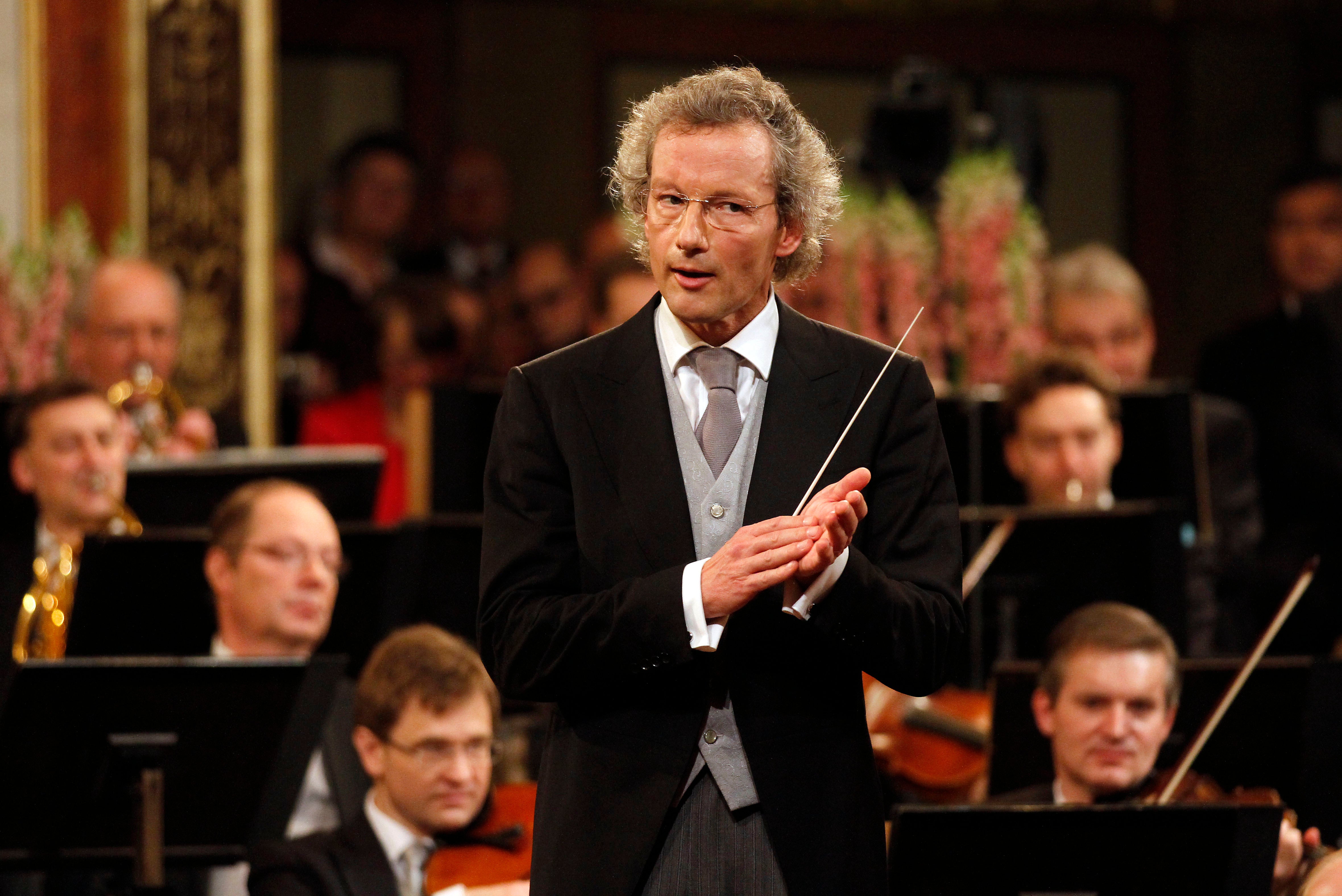Franz Welser-Möst is back with Cleveland Orchestra after cancer surgery and slipped disk
Franz Welser-Möst is back on the Cleveland Orchestra’s podium, concentrating again on music instead of his health

Franz Welser-Möst is back on the Cleveland Orchestra's podium, concentrating again on music instead of his health.
“It was not my best year, the last year," he said Wednesday. “I feel good. You learn to live with the circumstances, and I'm extremely and grateful that I'm back at work.”
On track to surpass George Szell as Cleveland's longest-tenured music director, the 63-year-old Austrian returned to his orchestra at Cleveland's Severance Music Center last week and leads it in a pair of programs at Carnegie Hall this weekend. He will be in Austria for five concerts with the Vienna Philharmonic in late February, then leads that orchestra on a seven-concert tour in early March to New York and Naples and West Palm Beach, Florida.
Quite a schedule, given his setbacks in 2023.
He had a slipped disk in his neck while conducting Wagner's four-opera “Der Ring des Nibelungen (The Ring of the Nibelung)” at the Vienna State Opera in June, an injury that caused him to enter an orthopedic clinic in the second half of July and again in August. He was forced to cancel a high-profile new production of Verdi's “Macbeth” at the Salzburg Festival.
Welser-Möst had surgery Sept. 1 to remove a cancerous tumor from his bladder and came back to Cleveland to conduct the orchestra's season opener on Sept. 28. After leading two weeks of programs there, he took the orchestra to Vienna and Linz for their 21st international tour together, then had a second operation on Oct. 25.
That was followed in November by six weeks of once-a-week immunotherapy treatment. He is scheduled for additional three-week cycles of treatment in March, July and October.
“The doctors are very happy. So am I, that it seems to work. It has been in my family, so it’s genetic,” Welser-Möst said. “Both my brothers had the same thing a couple of years ago. Both are very well now, so there’s every reason to be optimistic.”
Welser-Möst has been Cleveland's music director since 2002-03 and has appointed 69 musicians, including 52 of the current 105 members.
“One of the keys to Franz's success is his incredible discipline. He's like a great athlete in that way,” said André Gremillet, the Cleveland Orchestra’s president and CEO. “He’s very focused, very disciplined in the way he approaches everything, and I think that has served him well also in facing his health challenges.”
His name at birth in Linz, Austria, was Franz Leopold Maria Möst, and he switched it in 1985 to Welser-Möst in honor of Wels, a nearby city he grew up in. The change was made on the advice of a benefactor, Baron Andreas von Bennigsen of Liechtenstein.
Welser-Möst spent a decade studying the technique of Herbert von Karajan, the Berlin Philharmonic’s chief conductor from 1954-89. He was 19 when he was brought to Karajan in 1979 by Albert Moser, then general director of Vienna’s Musikverein. Welser-Möst was among the 10 finalists of the Karajan International Conductors Competition, though he failed to win.
“I’d been to a lot of rehearsals in Vienna, in Salzburg and Berlin, and that made a huge impression on me because Karajan was highly efficient in rehearsals,” Welser-Möst recalled. “He would just say one sentence and the sound of the orchestra changed completely. And in those days, of course, I was like: How on earth is he doing that?”
Welser-Möst first conducted the Cleveland Orchestra in 1993 and became music director for the 2002-03 season. On the afternoon of his return concert on Jan. 11, he announced he will retire as music director at the end of 2026-27, his 25th season. Welser-Möst maintained he wasn't focused on topping Szell's reign, which stretched from 1946-70.
“I’m not into that game. It just happened,” he said.
Welser-Möst's New York concerts are part of Carnegie Hall's “Perspectives” series and its focus this winter and spring on the fall of the Weimar Republic.
“It is something that is so important to him and so important to his life,” Carnegie Hall executive director Clive Gillinson said. “I remember doing one Zoom call where he was in his library and he showed me all the books he's got on Weimar.”
Welser-Möst is proud of extending the orchestra's flexibility by programming semi-staged operas, with Mozart's "Die Zauberflöte (The Magic Flute)" next this May. He already has scheduled Janáček's “Jenůfa” for next season, Beethoven's “Fidelio” for 2025-26 and Strauss' “Die Frau ohne Schatten (The Woman without a Shadow)” for 2026-27.
“I’m an old dog when it comes to opera,” he said. “I’ve conducted about 90 different operas in my life. When I was in Zurich for nearly 14 years, I conducted 43 opening nights of a piece.”
His retirement creates another coveted U.S. podium vacancy. Riccardo Muti stepped down from the Chicago Symphony Orchestra in June and Gustavo Dudamel shifts from the Los Angeles Philharmonic to the New York Philharmonic for the 2026-27 season.
“Every institution needs once in a while new input and new ideas,” Welser-Möst said. “I’m not saying I'm running out of ideas, but I always tried to live that philosophy here, that music comes first, the institution second, the individual third.”
Bookmark popover
Removed from bookmarks